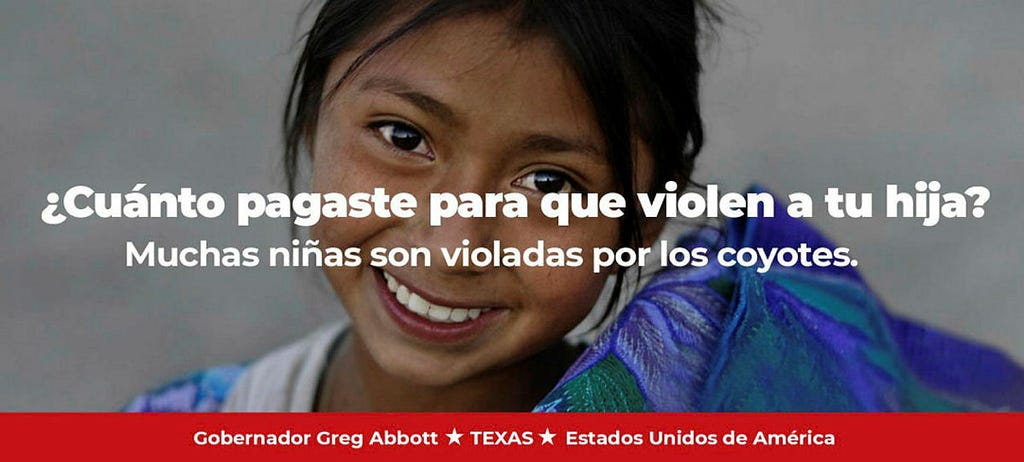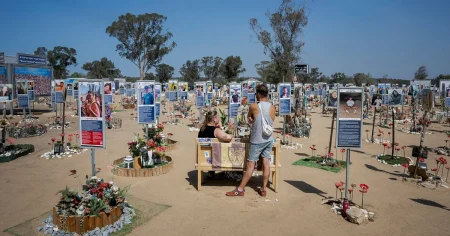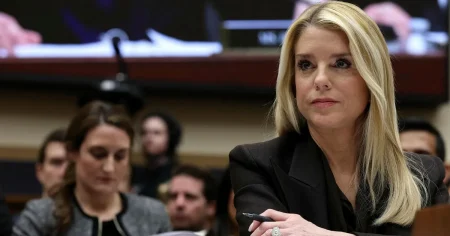Texas Governor Greg Abbott has launched a controversial campaign targeting migrants attempting to cross the Texas-Mexico border. The campaign features billboards with stark warnings about the dangers of illegal immigration, including the risk of sexual assault by human traffickers. One billboard poses the question, ”How much would you pay to have your daughter raped?” Another states, ”Your wife and daughter will pay for the journey with their bodies. Smugglers lie. Don’t put your family at risk.” These messages, translated into Spanish, Russian, Chinese, and Arabic, are intended to deter migrants from undertaking the perilous journey. Abbott justifies the campaign’s harsh tone by citing a reported 70% increase in sexual assault cases among female migrants seeking medical care in border towns like Reynosa and Matamoros, based on data from Doctors Without Borders. He argues that the billboards are a necessary measure to prevent further tragedies.
The campaign is part of Operation Lone Star, a broader border security initiative launched in 2021 aimed at curbing illegal immigration into Texas. The operation has resulted in the apprehension and deportation of over half a million migrants. Abbott, a close ally of former President Donald Trump, has vowed to continue this aggressive approach and collaborate with future administrations to further restrict illegal immigration. He has already allocated over five square kilometers of land for the construction of temporary bases to facilitate mass deportations, a policy championed by Trump. The governor frames the campaign as a protective measure, emphasizing the need to safeguard vulnerable migrants from the dangers they face during their journey, including exploitation and violence by criminal organizations.
Abbott’s campaign has ignited controversy and criticism. Opponents argue that the billboards exploit the trauma of sexual assault victims and reinforce harmful stereotypes about migrants. They contend that the campaign’s focus on fear-mongering fails to address the root causes of migration and overlooks the need for comprehensive immigration reform. Furthermore, critics question the effectiveness of such tactics, suggesting that they are unlikely to deter desperate individuals fleeing violence and poverty. They argue that the campaign dehumanizes migrants and reinforces a hostile environment at the border, undermining efforts to provide humanitarian assistance and protection to vulnerable populations.
The governor’s messaging emphasizes the dangers posed by human traffickers who prey on migrants, highlighting the vulnerability of women and children. He asserts that the campaign is designed to inform migrants about these risks and encourage them to seek safer alternatives. During a press conference at a ranch in Eagle Pass, Abbott presented ranch owners who testified to witnessing instances of violence and sexual assault against migrants on their property. This anecdotal evidence, according to the governor, underscores the urgency of the situation and the need for drastic measures to protect migrants from harm.
However, critics argue that the campaign’s shock tactics are counterproductive and may even exacerbate the vulnerabilities of migrants. They argue that by focusing solely on the dangers of the journey, the campaign overlooks the desperation that drives many migrants to undertake such risks. Critics also point to the lack of comprehensive support services for migrants who choose to turn back, leaving them stranded and vulnerable to exploitation. They advocate for a more humane approach that prioritizes the safety and well-being of migrants while addressing the underlying causes of migration.
The billboards’ stark messages, particularly the one referencing the rape of daughters, have been condemned as insensitive and exploitative by human rights organizations and migrant advocates. They argue that such language trivializes the trauma of sexual assault and contributes to a climate of fear and hostility towards migrants. Critics also question the accuracy of the statistics presented by Abbott, arguing that the data may be inflated or misrepresented to justify the campaign’s harsh approach. They call for a more nuanced and compassionate approach to addressing the complex challenges of migration, one that prioritizes human rights and dignity over fear-mongering tactics. The debate continues over the effectiveness and ethical implications of Governor Abbott’s controversial campaign.














